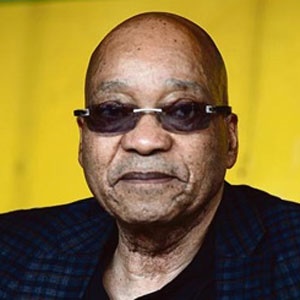
Waiting until 2019 may do our democracy more harm than good, write Bobby Godsell and James Motlatsi
On April 27, our country celebrated Freedom Day. Back in 1994, we stood in lines, patiently and joyfully, not only to decide who should govern, but how we should be governed.
We voted for a government that would respect and protect the rights of all. We elected a government that was accountable to the people under law.
Two years later, President Nelson Mandela signed the Constitution into law. The dream of a government required by law to serve its people became the supreme law of the land.
The basic rights of all were entrenched. The powers of government were divided into separate institutions. The executive institutions of government were required to enable and protect the rights of citizens.
The legislative institutions were required to hold the executive to account. Our courts had the job of ensuring that all the institutions of government upheld our Constitution.
Twenty years later, our highest court has highlighted some deep failures in the 1996 promise of government under law.
The Constitutional Court has found that our president and National Assembly have failed to uphold critical constitutional duties.
President Jacob Zuma has failed to uphold, defend and respect the Constitution. The National Assembly has failed to ensure government by the people under the Constitution, and failed in its duty to ensure that all executive organs of the state are accountable to it.
These rulings arise from the failure of the president and National Assembly to implement the findings of the Public Protector with regard to public money spent on President Zuma’s private residence.
However, these failures are evident in a pattern of behaviour that is broader.
How do we repair the damage that this judgment has made evident? How do we return the institutions that govern us to that robust dream of the accountable exercise of power?
At present, our nation is dividing itself into two camps, defined by the personality of our president. “Zuma must go,” cries one camp. “Zuma must stay,” cries another.
Yet the problems we face are critically about the failure of institutions. Solutions need to be about strengthening institutions, not only about individual leaders.
There are at least three things that can and should be done now to restore our constitutional democracy.
Authentic apologies
1. An apology is a good way of acknowledging a mistake. To be authentic, the apology must indicate a clear acceptance of wrong behaviour, and an equally clear commitment to right behaviour in the future.
The apology offered by President Zuma on April 1 falls well short of this standard. The Speaker of the National Assembly, Baleka Mbete, has indicated that she sees no reason to apologise.
Strengthening institutions
2. Our Constitution provides a critical institution to help correct the abuse of power by those who govern. The Public Protector has the task of investigating improper conduct in state affairs or public administration.
The current Public Protector’s nonrenewable term of office comes to an end later this year. Parliament has to recommend, and the president appoint, her successor. The Constitution makes provision for civil society to be involved in the process of nomination.
Civil society can therefore identify South Africans whose experience and character are appropriate to serve in this key office.
Renewing the covenant
3. When institutions of government fail to act in terms of their oath of office, a relationship of trust is broken. In a democracy there is, finally, only one way to restore that trust.
Our National Assembly should dissolve, and enable new elections. The 400 members elected by the people of South Africa to be their legislative voice can renew their oath of office.
In turn, these 400 can elect a citizen to be our first citizen and assume the office of President of the Republic of South Africa. Our Constitution allows for the dissolution of the National Assembly once it has completed three years of its five-year term of office. This will have occurred in May next year.
The judgment said this of the office of our president: “He is the first citizen of this ... The promotion of national unity and reconciliation falls squarely on his shoulders ... The nation pins its hopes on him to steer the country in the right direction.”
Of the National Assembly, the chief justice, Mogoeng Mogoeng, said: “It is the voice of all South Africans, especially the poor, the voiceless and the least remembered.
It is the watchdog of state resources, the enforcer of fiscal discipline and cost-effectiveness ...”
Only the early election of a new National Assembly, and thereafter the election by this assembly of a new president, can restore these two critical institutions of government to the role that the judge has described for them.
Surely it is better to renew the legitimacy of these key institutions next year, rather than wait until 2019.
Motlatsi and Godsell co-chair Citizens ZA




 Publications
Publications
 Partners
Partners








